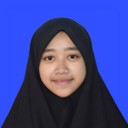Tentang KamiPedoman Media SiberKetentuan & Kebijakan PrivasiPanduan KomunitasPeringkat PenulisCara Menulis di kumparanInformasi Kerja SamaBantuanIklanKarir
2025 © PT Dynamo Media Network
Version 1.102.2
Konten dari Pengguna
Open Educational Doors and Equal Access
13 Februari 2024 7:58 WIB
Tulisan dari Siti Tazqiyatul Hasanah tidak mewakili pandangan dari redaksi kumparan
ADVERTISEMENT
In the digital era which continues to develop rapidly, we are witnessing profound changes in the way we obtain and access information or knowledge. Amid these changes, initiatives such as the library's mobile visit program have become known as "Open Doors to Education in the Digital Age."
ADVERTISEMENT
First of all, we cannot ignore the fact that access to education is still a challenge in some areas. Some of the obstacles that constitute these challenges are difficulty of access to certain areas, lack of educational facilities, limited qualified teaching staff and high costs. These are several factors that cause challenges to access to education in some areas. Therefore, the library car visit program is a solution for several educational institutions that have limited access in terms of learning materials, economics and teaching staff. Not just providing access, with this program the educational gap will be reduced.
One of the institutions that has a library car visit program is the Muhammadiyah University of Ponorogo, this mobile library initiative program or "Ngambil Pustaka L2P Umpo" (the name of the program at the Muhammadiyah University of Ponorogo Library) is more than just opening up access to education, this program has brought literacy to the center. in society and most importantly, this indirectly conveys a strong message that education is a human right that should be enjoyed by all.
ADVERTISEMENT
With the existence of a mobile library program such as Ngambil Pustaka L2P Umpo, the opportunity for students' interest in reading will increase. This will help them to be literate and think critically. This easy access to education will encourage the world to create justice for everyone, not only providing the light of knowledge but also opening up opportunities for the creation of intelligent and empowered children of the nation.
In order to look forward to a brighter future, the Umpo L2P Library program can be an example of how education can be a pioneer for the nation's children, ensuring that their right to have broader knowledge is fulfilled. If we don't start now and from the smallest things, then when will the nation's children have a work that can be performed on the world stage? However, we need to re-evaluate whether this program can be sustainable and relevant? Our task is to ensure that this limited access to education does not only have a temporary solution but is truly resolved completely.
ADVERTISEMENT
Only with sustainable programs and joint commitment, can we create an inclusive and equitable education system for society. Library car visit programs such as Ngambil Pustaka L2P Umpo are not only a first step, but must be accompanied by maintenance, evaluation and improvement efforts. Once this program becomes a sustainable activity, this program can involve wider parties such as government institutions.
This is done to ensure that the doors to education are open to create a society that is smarter, more critical and able to respond to world challenges. Programs such as Ngamb
il Pustaka L2P Umpo are one of the concrete efforts to bridge the education gap.
In closing, we need to realize that open doors to education and equal access to education are one of the keys to social progress, not only opening the door to knowledge but creating a strong foundation for future generations. Let us continue to support and fight for these efforts so that the doors to education are wide open, can overcome every obstacle and provide equal opportunities for the nation's children. With this, we can achieve a brighter and smarter future, where education is the main force for driving social progress.
ADVERTISEMENT
Reference
Napitulu, Ester Lince. “Tingkatkan Kesetaraan Akses Pendidikan Jarak Jauh Berkualitas,” 2023. https://www.kompas.id/baca/humaniora/2023/06/12/tingkatkan-akses-dan-kesetaraan-pendidikan-jarak-jauh-berkualitas.
Patandung, Yosef, and Selvi Panggua. “Analisis Masalah-Masalah Pendidikan Dan Tantangan Pendidikan Nasional.” Jurnal Sinestesia 12, no. 2 (2022): 794–805.
Rahmi Rivalina, Rahmi Rivalina. “Mengapa Pendidikan Terbuka Dan Jarak Jauh (PTJJ)?” Jurnal Teknodik, 2013, 109–22. https://doi.org/10.32550/teknodik.v0i0.93.
Rahmiati, Firman, and Riska Ahmad. “Implementasi Pendidikan Sebagai Hak Asasi Manusia.” Jurnal Pendidikan Tambusai 5, no. 3 (2021): 10160–65.

